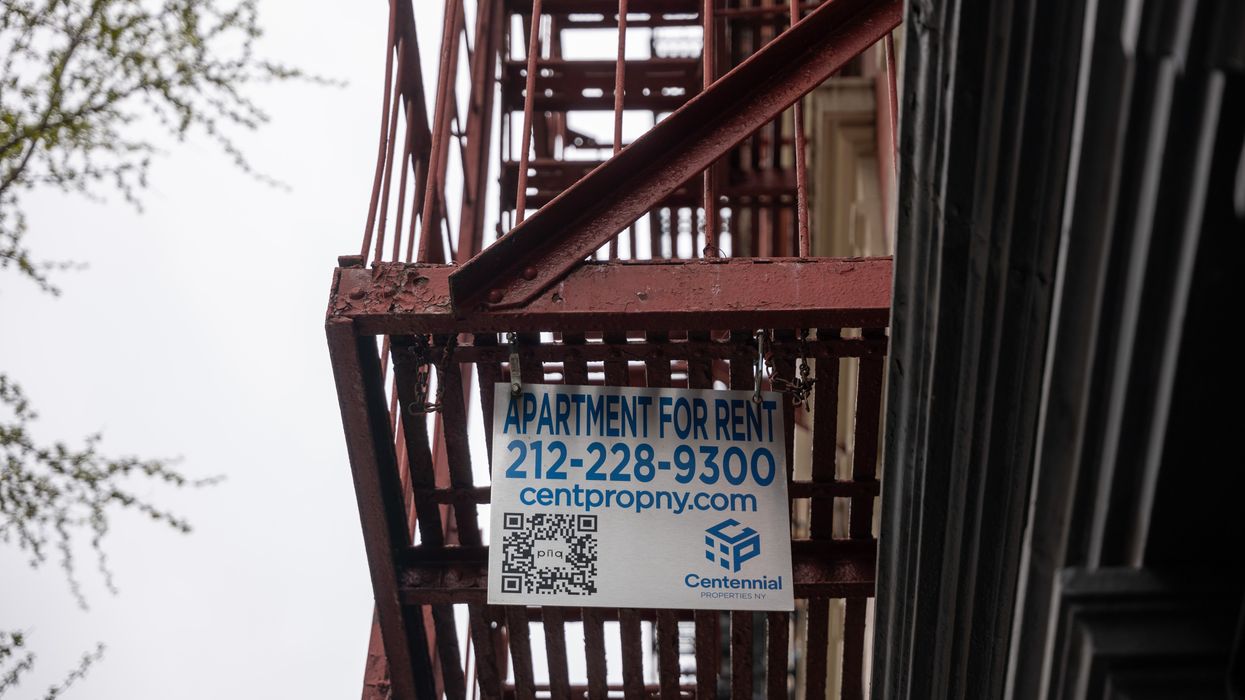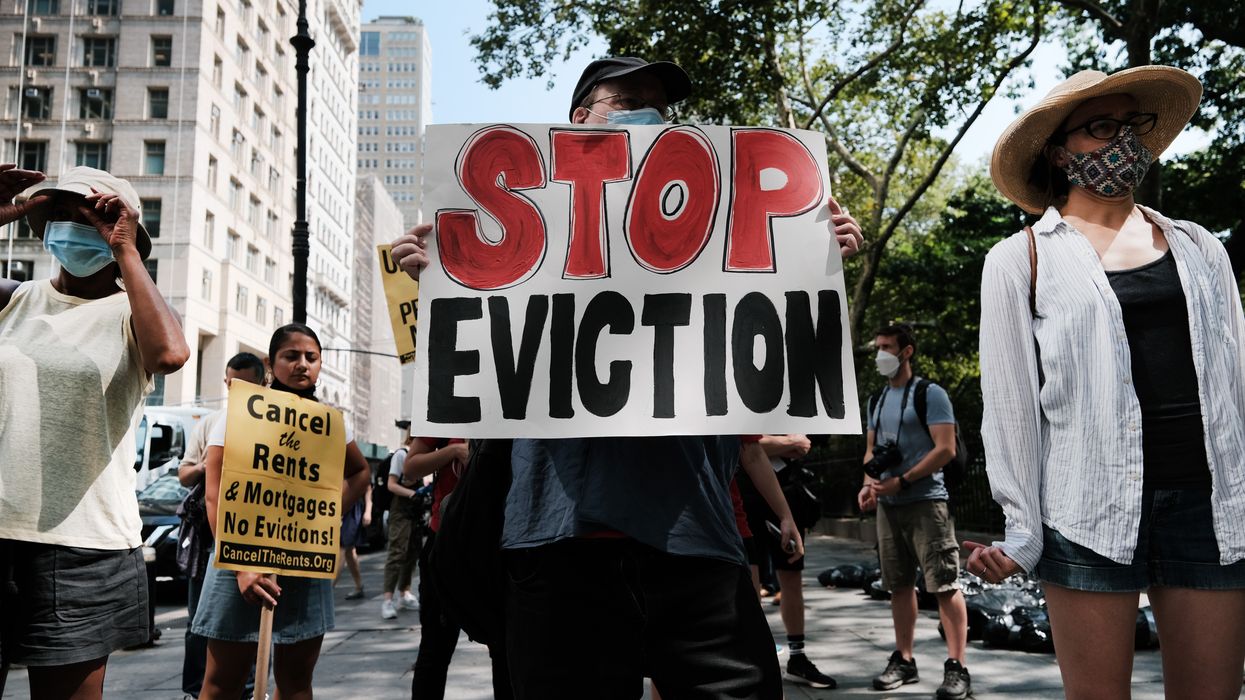Landlord Doublespeak and the Rise of the 'Housing Provider'
What drives the preference of landlords to call themselves “housing providers” is a desire to euphemize the landlord-tenant relationship and to obscure some of its basic and most important features.
Landlords want to be called “housing providers.” Industry organizations in California, Washington, Rhode Island, and elsewhere are proudly claiming the label. Equal to this craving to be called “housing providers,” it seems, is the wish among landlords to no longer be called landlords. The term is antiquated, they say, and has a negative stigma that doesn’t reflect reality. The industry is not particularly secretive about these desires or the reasons behind them, which have to do with image and narrative.
The dictionary definition of landlord is precise enough, however, and, in fact, couldn’t be plainer: “The owner of property (such as land, houses, or apartments) that is leased or rented to another,” according to Merriam-Webster.com. The definition identifies the essential feature of any residential landlord—that they engage in a financial transaction to lease living space. This seems straightforward enough and noncontroversial. The motivation of the industry is thus not related to any mismatch between our common understanding of the word and its most essential attribute.
Instead, what drives the preference of landlords to call themselves “housing providers” is a type of Orwellian doublespeak intended to euphemize the landlord-tenant relationship and to obscure some of its basic and most important features. What does the phrase obscure? For one, it elides the basic extractive nature of landlording, the fact that landlords expect, in fact, rely upon the relationship to be monetarily profitable to them. This is the critical fact of landlording, that it is done in the main to make a profit.
Granted there are some instances of landlords renting to family members or others without expectations of profit, but these exceptions are merely that—exceptions. The English language routinely makes distinctions between services rendered for a fee and those provided on other bases. The difference between “housing provider” and landlord is the difference between a date and a paid escort or sex worker, it is the difference between the volunteer and the mercenary, between a financial gift and an interest-bearing loan. The English language is not unique in containing words that make clear the monetary exchange and profit that define some relationships. We use these words because the information they contain is consequential.
If the landlord industry truly wants to do something to burnish its public image, it might consider publicly rejecting or sanctioning members of its community who hiked rents in Los Angeles County by 20% in the aftermath of the fires of January 2025.
This attempt to obscure the profit motive in landlording is all the more problematic because those who would call themselves “housing providers” in one breath, will, in the next, argue against rent stabilization, tenant protections, and other regulations on the basis that these policies make their business unprofitable, or less profitable than they would prefer. This is wanting it both ways—attempting to hide the profit motive while simultaneously insisting on it.
“Housing provider” is also meant to conceal the power dynamics of the landlord-tenant relationship, one in which landlords hold the privileges associated with property ownership, the ability to define the terms of acceptable behavior and limits of property use available to tenants, and the ultimate power of eviction. Moreover, at a time when corporate landlords are extending their reach into the market, and we see the spread of price-fixing algorithms to maximize rents and profit, AI-driven tenant screening algorithms to perform background checks, and greater concentration and market power at the industry scale, the insistence on the phrase “housing provider” is an obvious attempt at happy-faced distraction.
Just as important as the attempt to disguise profit motive and landlord power is the effort to dodge whatever negative connotations attach to the term landlord. “Housing provider” is meant to avoid images of rapaciousness and greed, or to conjure images of benevolence and even charity, or to do both. The use of the phrase is, in other words, an attempt, acknowledged by the industry, to control a narrative. As such it is a political act, an effort to persuade and to establish a particular understanding of who landlords are and what they do, all in the service of influencing public debate and public policy. This is not to argue that tenants don’t also try to influence the public narrative; of course they do. It is merely to note that this phrase, “housing provider,” is a calculated bid to construct meaning in a highly contested policy area and it needs to be recognized as such. Those who choose to adopt the phrase choose to adopt the narrative.
If the landlord industry truly wants to do something to burnish its public image, it might consider publicly rejecting or sanctioning members of its community who hiked rents in Los Angeles County by 20% in the aftermath of the fires of January 2025. It might help to police property owners who evicted tenants during the pandemic in violation of federal and local laws. It might take action to address sexual harassment of low-income women by landlords, or address any of a number of discriminatory or exploitative practices that haunt the industry. Those wishing to hide behind the “housing provider” label will argue that not all landlords are bad, which is of course true. They will say only a portion of landlords engage in the practices that give landlord its stigma. But, if the only response by the industry is to stop using the word landlord, it betrays a self-serving concern that does little to improve negative public perceptions and, in fact, largely confirms them.
We don’t call Exxon an “oil provider,” nor do we call GM an “automobile provider.” We don’t even call the corner mom-and-pop store a “grocery provider.” There is no reason to accept the kind of politically motivated doublespeak behind the rise of “housing provider.”



